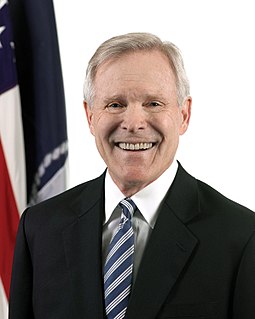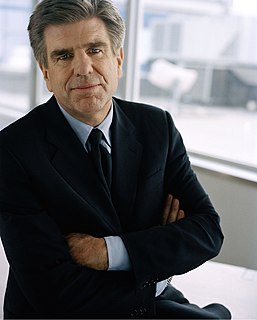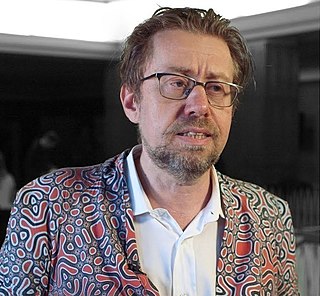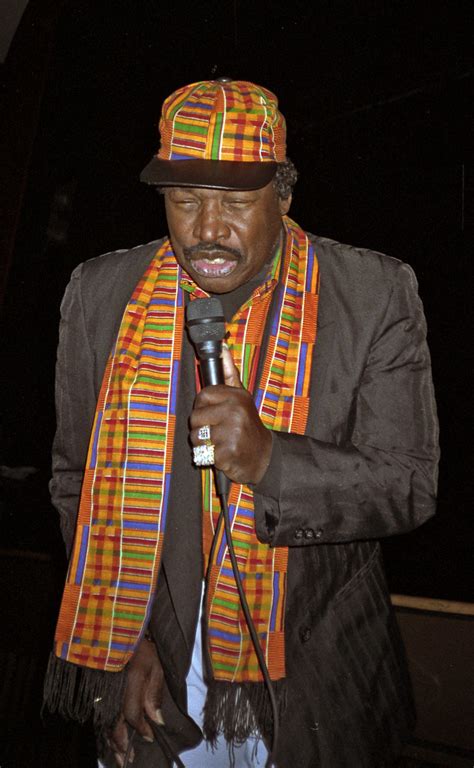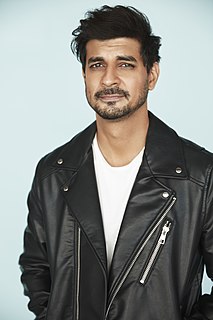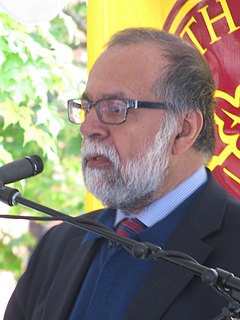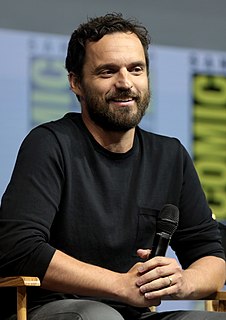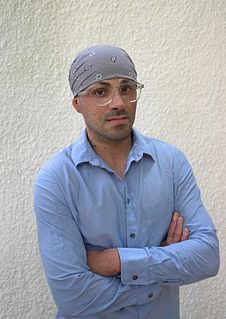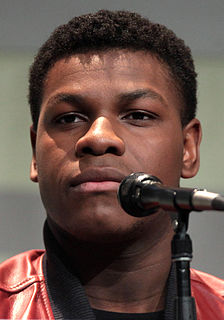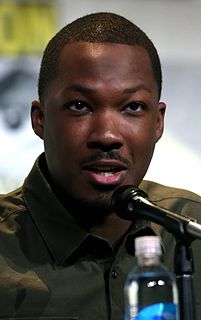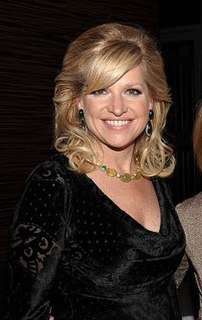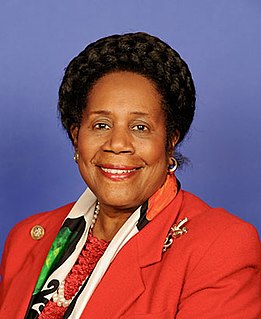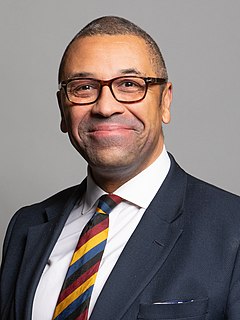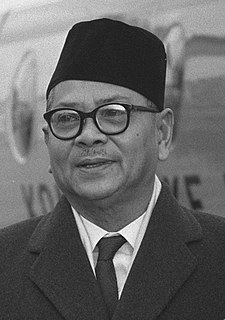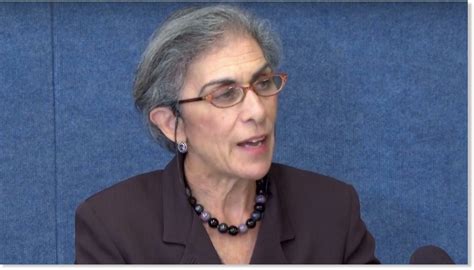Top 1200 Diverse Cultures Quotes & Sayings - Page 3
Explore popular Diverse Cultures quotes.
Last updated on December 4, 2024.
We're not in cultures which support learning; we're in cultures that give us the message consistently: "Don't mess up, don't make mistakes, don't make the boss look bad, don't give us any surprises." So we're asking for a kind of predictability, control, respect, and compliance that has nothing to do with learning.
You always hold the key of repentance to unlock the prison door. If they throw the word diversity at you, grab hold of it and say, "I am already diverse, and I intend to stay diverse." If the word is tolerance, grab that one, too, saying, "I expect you to be tolerant of my lifestyle-obedience, integrity, abstinence, repentance." If the word is choice, tell them you choose good, old-fashioned morality.
I've done a lot of theater work that has been quite diverse. I feel very fortunate to have had many different people think of me in many different ways. So, as an actor that's all you - all I want is diversity. So far in film and television work I have done has not been as diverse, and I hope it grows to be.
When we come back to fantasy, I think we're actually coming back to the real bedrock of storytelling. Our national or international genre really is fantasy, if you think about the worldwide myths and legends and stories that we all know, whether we're talking about Little Red Riding Hood or the Arabian Nights or Noah's Ark or Hercules. These are stories that cross many cultures in much the same way that dragons cross many cultures.
A lot of indigenous cultures are deeply involved in working with ancestor spirits, elemental spirits, and demons. Many of these cultures feel that, if you don't deal properly with ancestor spirits, then they come back and infest the living in the form of things like depression, addictive patterns, and neuroses. We in the modern West completely deny the existence of these spirits or other types of entities. And because we've denied them, we may have opened the gates for them to manipulate us in a lot of ways.
A diverse ecosystem will also be resilient, because it contains many species with overlapping ecological functions that can partially replace one another. When a particular species is destroyed by a severe disturbance so that a link in the network is broken, a diverse community will be able to survive and reorganize itself... In other words, the more complex the network is, the more complex its pattern of interconnections, the more resilient it will be.
Great cycles of history began with vigorous cultures awakening to the needs of children, but collapsing with frayed family ties. Have we failed to learn lessons which Ancient China, Greece and Rome learned too late - about day care and death houses for old folks? Do we without protest accept accelerating preschool and nursing home cultures which warn ominously that the earlier you institutionalize your child, the earlier he will institutionalize you!
Human cultures are all experiments in trying to find a form that will fit the matter of our immediacy; but it is absolutely not the case that all such experiments are of equal merit or value. Some cultures - and modernity is patently one - have managed to transmute consciousness into the "disease" that Nietzsche called it, the self-affliction of a self-centeredness that has purged itself of all vestiges of wisdom and value.
Good and Evil are names that signify our appetites and aversions, which in different tempers, customs, and doctrines of men, are different: And diverse men differ not only in their judgment, on the senses of what is pleasant and unpleasant to the taste, smell, hearing, touch, and sight, but also of what is conformable, or disagreeable to Reason, in the actions of the common life. Nay, the same man, in diverse times, differs from himself, and one time praiseth, that is, calleth Good, what another time he dispraiseth, and calleth Evil.
Normal children of both sexes and all cultures will follow a more or less standard and universal developmental pattern and timetable, and reach approximately the same level of development at maturity. While a particular culture's need and expectations and teaching will shape the course of development and affect adult capabilities to some degree, normal individuals, whatever their native culture, if transplanted and taught, could learn to meet the normal demands of their adapted cultures.
The fact that cognitive diversity matters does not mean that if you assemble a group of diverse but thoroughly uninformed people, their collective wisdom will be smarter than an expert's. But if you can assemble a diverse group of people who possess varying degrees of knowledge and insight, you're better off entrusting it with major decisions rather than leaving them in the hands of one or two people, no matter how smart those people are.
While [European] national cultures were concocted to distinguish one economic unit of capital from another, civilizational thinking was invented to unify these cultures against their colonial consequences. Islamic, Indian, or African civilizations were invented contrapuntally by Orientalism... in order to match, balance and thus authenticate 'Western Civilization'.
I am very, very proud I am also Turkish and both of my parents are from Turkey. I was born in Germany and grew up there. By playing football, I learned my different cultures, and that is an advantage if you grow up as a person. You get a different view on certain things. I am very, very thankful I was able to pick the best from many cultures.
There seems also to be a tremendous risk to indigenous cultures if we insist that all scholarship be conducted in English. We are, for example, dealing with ancient and very highly-developed cultures in Korea, Japan, China and the Middle East. What is the impact on cultural and scholarly vitality forcing everyone to do their work in English? I do not have an answer, but this issue has been very much on my mind.
I think there's a general confusion that my work is about types of photography. But really that's just a tool to introduce some questions I have about seeing. What happens when all of these conditions and structures and histories and cultures and tools you have around you begin to fail? On the one hand there is an engagement with histories and cultures, and on the other, there is this very lonesome space of actually coming to terms with seeing.
In a city like London, the fact that cultures live together and cross-fertilize is a beautiful and natural thing. The many cultures in Amsterdam contribute to the city's high level of craziness - something which every interesting city should offer. But sometimes immigrants can live in parallel worlds which can exclude others and not be very attractive.
The amplification of our diverse literary voices is a political act of resistance. Our lives are important, too. Our lives should be represented in our literature. And that literature is vital, compelling, and accessible. That literature deserves to be disseminated and noticed and available. And with respect to the dissemination and promotion of diverse voices - librarians, educators, and editors of literary journals play such an important role. They deserve not only a hearty shout out, but also our thanks and support.
In general, in more collectivist cultures, we see that in group settings, people dampen their emotions but are very expressive when they are at home alone. In more individualistic cultures, such as North America and Europe, it's the opposite - people are more expressive in group settings than when they are by themselves.
Let the painter composing narrative pictures take pleasure in wealth and variety, and avoid repeating any part that occurs in it, so that the uniqueness and abundance attract people to it and delight the eye of the observer. I say that a narrative painting requires (depending on the scene), wherever the eye falls, a mixture of men of diverse appearances, of diverse ages and dress, combined together with women, children, dogs, horses, buildings, fields, and hills.
Modern art to me is nothing more than the expression of contemporary aims of the age we’re living in. All cultures have had means and techniques of expressing their immediate aims – the Chinese, the Renaissance, all cultures. The thing that interests me is that today painters do not have to go to a subject matter outside of themselves. Most modern painters work from a different source, they work from within.
The reason I loved working at Boeing was because I loved the idea of air travel as a way of bringing people and cultures together - because when we come together as people and cultures, we realize that we are not that different after all, and when we realize that we are not that different after all, the world becomes a better place.
There are thus two tasks for the Mass Media division of Unesco, the one general, the other special. The special one is to enlist the press and the radio and the cinema to the fullest extent in the service of formal and adult education, of science and learning, of art and culture. The general one is to see that these agencies are used both to contribute to mutual comprehension between different nations and cultures, and also to promote the growth of a common outlook shared by all nations and cultures.
A first grader should understand that her or his culture isn't a rational invention; that there are thousands of other cultures and they all work pretty well; that all cultures function on faith rather than truth; that there are lots of alternatives to our own society...Cultural relativity is defensible, attractive. It's a source of hope. It means we don't have to continue this way if we don't like it.
From the 9th to the 15th centuries, the area which is now modern Spain was home to the greatest peaceful agglomeration of cultures ever known in the post-literate worldEven more remarkable than the flowering of art itself was the confluence of cultures that produced it: under the rule of Islam, Muslims, Jews and Christians lived and worked together in relative harmony.
The saying "no self, no problem" probably comes from Zen. In their cultures, where Buddhism is kind of taken for granted, as well as karma, causality, former and future life, and the possibility for becoming enlightened, then it's safe to skirt the danger of nihilism, which would be, I don't exist because Buddha said I have no self, and therefore I have no problem because I don't exist. That would be a bad misunderstanding. But in those cultures, it would not be as easy to have that understanding as it would be here in the west, where we really are nihilistic.
Endless data show that diverse teams make better decisions. We are building products that people with very diverse backgrounds use, and I think we all want our company makeup to reflect the makeup of the people who use our products. That's not true of any industry really, and we have a long way to go.
I do not feel that the West has really become less condescending toward foreign cultures than the Greeks and Romans were: it has only become more tolerant. Mind you, not toward Islam—only toward certain other Eastern cultures, which offer some sort of spiritual attraction to the spirit-hungry West and are, at the same time, too distant from the Western world-view to constitute any real challenge to its values.
Build creative cultures, and work with purpose to unleash the creativity of your team. Creativity is the most valuable natural resource in any organization, yet it is often a resource that is largely untapped. The leaders that prioritize and invest in creative cultures will be the wall street darlings of tomorrow. In fact, they're the darlings of today (Facebook, Groupon, LinkedIn, etc).
We usually forget that apart from making a living on this earth, human beings live in societies and these societies have cultures. It is only through having cultures that mankind on this earth has an ordered and meaningful life. Music and drama are two of the many important manifestation of a culture. They are important because they represent the expressions emanating from the power of human artistic creativity
It's not as though there aren't many, many art works and many other cultures, but there was something special about the civic nature of the Greek theater. All the citizens stopped working. They came into these theaters. It wasn't like a Broadway theater where you sit in the dark and you expect to be passively entertained. You're in this theater, amphitheater, in bright sunlight looking at your fellow citizens, recognizing their faces, and thinking with them about the future of your city. I think very few cultures have had a theatrical tradition that is quite so civic.
What I find on the Internet is fascinating because whole subcultures are developing. And they really are cultures. They have their art forms, their music, and their language. They have their spirituality, they have new names. It's almost like watching colonies of little organisms develop under a petri dish. You can really see these cultures swarming and growing and developing and spawning on the Internet.
You know, people come from cultures all around the world. Many of those cultures, you know, are not terribly successful. You can tell because you go to the countries and they're doing really poorly, and a lot of why they're doing poorly is because of the outlook, mind-set, and behavior of the people.
To put it in a nutshell, the Central and South American high cultures of antiquity were entirely worthy of comparison with what the Old World had achieved by the time of the Han, the Gupta, and the Hellenistic age. The fact is that the Amerindian high cultures were a human modality of their own, and those Spaniards who came among them first would have had the sensation, if they had ever heard of such literature, of treading in a world of imaginative science fiction. But it was real, and the Amerindian achievements deserve all our sympathy and praise.
